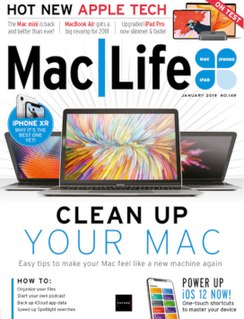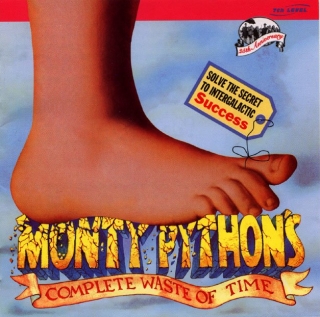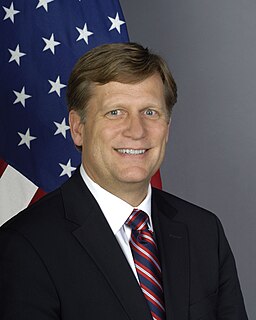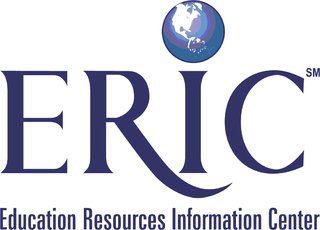SIGCAT (Special Interest Group on CD Applications and Technology) was a special interest group founded in 1986 by Jerry McFaul, an employee of the US Geological Survey. It became the world's largest CD-ROM users' group, with over 11,000 members in 75 countries. SIGCAT held annual conferences until 1999.

A CD-ROM is a pre-pressed optical compact disc that contains data. Computers can read—but not write to or erase—CD-ROMs, i.e. it is a type of read-only memory.
A users' group is a type of club focused on the use of a particular technology, usually computer-related.
In 2002, SIGCAT discovered that it had let its domain name, www.sigcat.org, expire, and that the name had been reregistered by a pornography site operator.

A domain name is an identification string that defines a realm of administrative autonomy, authority or control within the Internet. Domain names are formed by the rules and procedures of the Domain Name System (DNS). Any name registered in the DNS is a domain name. Domain names are used in various networking contexts and for application-specific naming and addressing purposes. In general, a domain name represents an Internet Protocol (IP) resource, such as a personal computer used to access the Internet, a server computer hosting a web site, or the web site itself or any other service communicated via the Internet. In 2017, 330.6 million domain names had been registered.
Internet pornography is any pornography that is accessible over the Internet, primarily via websites, peer-to-peer file sharing, or Usenet newsgroups. The availability of widespread public access to the World Wide Web in late 1990s led to the growth of Internet pornography.
Around 2002, SIGCAT was absorbed into the DVD Association (DVDA), an organization that had sprung from the CD Interactive Association (CDIA).

BIOS is non-volatile firmware used to perform hardware initialization during the booting process, and to provide runtime services for operating systems and programs. The BIOS firmware comes pre-installed on a personal computer's system board, and it is the first software to run when powered on. The name originates from the Basic Input/Output System used in the CP/M operating system in 1975. Originally proprietary to the IBM PC, the BIOS has been reverse engineered by companies looking to create compatible systems. The interface of that original system serves as a de facto standard.
Shareware is a type of proprietary software which is initially provided free of charge to users, who are allowed and encouraged to make and share copies of the program. Shareware is often offered as a download from a website or as a compact disc included with a magazine. Shareware is available with most computer software. Shareware differs from open-source software, in which the source code is available for anyone to inspect and alter; and freeware, which is software distributed at no cost to the user but without source code being made available.

The TurboGrafx-16 Entertainment SuperSystem, known in Japan and France as the PC Engine , is a cartridge based home video game console manufactured and marketed by NEC Home Electronics, and designed by Hudson Soft. It was released in Japan on October 30, 1987 and in the United States on August 29, 1989. It also had a limited release in the United Kingdom and Spain in 1990, known as simply TurboGrafx and based on the American model, while the Japanese model was imported and distributed in France in 1989. It was the first console released in the 16-bit era, although it used an 8-bit CPU. Originally intended to compete with the Nintendo Entertainment System (NES), it ended up competing with the Sega Genesis, and later on the Super Nintendo Entertainment System (SNES).
Shovelware is derogatory computer jargon for software bundles noted more for the quantity of what is included than for the quality or usefulness.

MacLife is an American monthly magazine published by Future US. It focuses on the Macintosh personal computer and related products, including the iPad and iPhone. It’s sold as a print product on newsstands, and an interactive and animated app edition through the App Store.

The Multimedia PC (MPC) was a recommended configuration for a personal computer (PC) with a CD-ROM drive. The standard was set and named by the "Multimedia PC Marketing Council", which was a working group of the Software Publishers Association. The MPMC comprised companies including Microsoft, Creative Labs, Dell, Gateway, and Fujitsu. Any PC with the required standards could be called an "MPC" by licensing the use of the logo from the SPA.

USS McFaul (DDG-74) is an Arleigh Burke-class destroyer in the United States Navy. She is named for U.S. Navy SEAL Chief Petty Officer Donald L. McFaul. This ship is the 24th destroyer of her class. USS McFaul was the 11th ship of this class to be built at Ingalls Shipbuilding in Pascagoula, Mississippi, and construction began on 26 January 1996. She was launched on 18 January 1997 and was christened on 12 April 1997. On 25 April 1998 she had her commissioning ceremony at the Garden City Terminal in Savannah, Georgia.

DeLorme is a producer of personal satellite tracking, messaging, and navigation technology. The company’s main product, inReach, integrates GPS and satellite technologies. inReach provides the ability to send and receive text messages anywhere in the world by using the Iridium satellite constellation. By pairing with a smart phone, navigation is possible with access to free downloadable topographic maps and NOAA charts. On February 11, 2016, the company announced that it had been purchased by Garmin, a multinational producer of GPS products and services.

The earliest Mac clones were based on Emulators and reverse-engineered Macintosh ROMs. During Apple's short lived Mac OS 7 licensing program authorized Mac clone makers were able to either purchase 100% compatible motherboards or build their own hardware using licensed Mac reference designs.

Minami Kuribayashi is a Japanese singer, songwriter, lyricist and voice actress from Shizuoka Prefecture. Since 2016, she performs under the stage name Minami.

MSN Games is a casual gaming web site, with single player, multiplayer, PC download, and social casino video games. Games are available in free online, trial, and full feature pay-to-play versions.
AmigaOS is the proprietary native operating system of the Amiga personal computer. Since its introduction with the launch of the Amiga 1000 in 1985, there have been four major versions and several minor revisions of the operating system.

Monty Python's Complete Waste of Time is a collection of minigames, screen savers, desktop wallpaper and icons for Mac OS System 7, DOS and Windows released in 1994 by 7th Level, Inc.

Michael Anthony McFaul is an American academic and professor of political science who served as the United States Ambassador to Russia from 2012 to 2014. Prior to his nomination to the ambassadorial position, McFaul worked for the U.S. National Security Council as Special Assistant to the President and senior director of Russian and Eurasian affairs. In that capacity he was the architect of U.S. President Barack Obama's policy on Russia.

A ROM cartridge, usually referred to simply as a cartridge or cart, is a removable memory card containing ROM designed to be connected to a consumer electronics device such as a home computer, video game console and to a lesser extent, electronic musical instruments. ROM cartridges can be used to load software such as video games or other application programs.

Nelson Ford was one of the founders of shareware software distribution, of HAL-PC, of the Association of Shareware Professionals, founder of the Public (software) Library, the largest commercial library of public domain and shareware software, and of the first major order processing service for shareware programmers. In 1984, through his shareware column in Softalk-PC magazine, he was responsible for standardizing the use of the term shareware for free-trial software.
He wrote several shareware games: CardShark Hearts, CardShark Spades, and CardShark Bridge Tutor. Nelson Ford was inducted into the Shareware Hall Of Fame in August 2001.
ACCU, previously known as the Association of C and C++ Users, is a non-profit user group of people interested in software development, dedicated to raising the standard of computer programming. The ACCU publishes two journals and organizes an annual conference.

Microsoft Encarta was a digital multimedia encyclopedia published by Microsoft Corporation from 1993 to 2009. Originally sold on CD-ROM or DVD, it was also later available on the World Wide Web via an annual subscription – although later many articles could also be viewed free online with advertisements. By 2008, the complete English version, Encarta Premium, consisted of more than 62,000 articles, numerous photos and illustrations, music clips, videos, interactive content, timelines, maps, atlases and homework tools.
PC Engine Fan was a Japanese magazine dedicated to the PC Engine, published by Tokuma Shoten. It ran from 1988 to 1996.
















